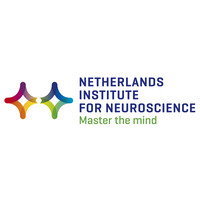
13 Oct Internship: Neurobiological Mechanisms of Reinforcement Learning, Habits, Compulsivity, and Deep-Brain Stimulation
Group: WILLUHN GROUP
Type: Internship
Type: Student Project
Location: Amsterdam
Description: The student will assist the research team in conducting behavioral experiments with rodents, sectioning and staining brains slices, manufacturing electrodes/optic fibers, conducting brain measurements and brain manipulations in behaving rodents.
Period: 6 month minimum (the longer the better)
Daily support: To be determined depending on the project
Senior Tutor: Ingo Willuhn
Description:
The Willuhn group studies the neurobiological basis of reinforcement learning, decision making, and compulsive behavior using rodent models, predominantly in cortico-striatal circuits. We are driven by the question “How do we control our behavior?” and “How do we lose control?”. We believe the basal ganglia and monoamine neurotransmitters are heavily involved in this. We investigate different aspects of motivated behavior (i.e., habit formation, response flexibility, impulsivity, compulsivity, and patience) and measure or manipulate brain activity, simultaneously. In addition, we investigate the neurobiological mechanisms of the effects of deep-brain stimulation (DBS) in rodent models of psychiatric disorders.
The group closely collaborates with the AMC department of Psychiatry and, therefore, has close ties with clinicians and clinical researchers, providing optimal conditions for a translational and multidisciplinary approach. Specifically, we translate clinical findings into relevant animal models for addiction or obsessive-compulsive disorder (OCD), and vice versa, we aim to apply the conclusions from our basic science findings in the clinical setting.
Our research tools include methods for intracerebral stimulation (e.g., DBS, optogenetic, chemo genetics) in freely moving rodents, in combination with tests for motivated, emotional, and cognitive behavior (in set-ups such as elevated plus maze, open field, and operant chambers), real-time neurochemical measurements (e.g., micro dialysis, fast-scan cyclic voltammetry), and electrophysiological recordings (single-unit activity and local field potentials, and 1-photon calcium imaging using miniscopes).
Projects:
The student will be involved in one of the following projects depending on preference and availability:
- The functional anatomy of the coordination of dopamine release in the striatum
- The roles of serotonin and dopamine in reinforcement learning, habit formation, and compulsivity
- Measurement and perturbation of functional brain activity in a rodent models of compulsive behavior
- The neural code of striatum and cortex during reinforcement learning, habit formation, and decision making
- Measurement and computational modeling of neurotransmitter release and neural acitivity involved in decision making and impulsive behavior
- Effects of DBS on brain function and compulsive behavior
Activities:
The student will assist the research team in conducting behavioral experiments with rodents, sectioning and staining brains slices, manufacturing electrodes/optic fibers, conducting brain measurements and brain manipulations in behaving rodents. Depending on scientific maturity and motivation, the student will run a project independently. The student will read relevant background literature, attend lab meetings and journal clubs, formulate research questions and hypotheses, collect data, analyze collected data, and give a presentation on a research question. For this, we need the student to be available full time for at least 6 months. There will be no financial support for this internship from the institute. Applications that do not meet requirements may not receive a response.
Please click here to apply.


Sorry, the comment form is closed at this time.